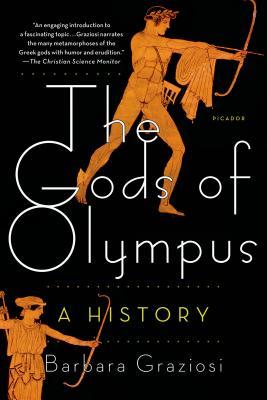The gods of Olympus are the most colorful characters of Greek civilization: even in antiquity, they were said to be cruel, oversexed, mad, or just plain silly. Yet for all their foibles and flaws, they proved to be tough survivors, far outlasting their original worshippers. In Egypt, the Olympian gods claimed to have given birth to pharaohs; in Rome, they led respectable citizens into orgiastic rituals of drink and sex. Under Christianity and Islam they survived as demons, allegories, and planets. And in the Renaissance, they triumphantly emerged as ambassadors of a new, secular belief in humanity.
In a lively, original history of mythology, Barbara Graziosi offers the first account to trace the wanderings of these inventive deities through the millennia. Drawing on a wide range of literary and archaeological sources, The Gods of Olympus opens a new window on the ancient world and its lasting influence.

The gods of Olympus are the most colorful characters of Greek civilization: even in antiquity, they were said to be cruel, oversexed, mad, or just plain silly. Yet for all their foibles and flaws, they proved to be tough survivors, far outlasting their original worshippers. In Egypt, the Olympian gods claimed to have given birth to pharaohs; in Rome, they led respectable citizens into orgiastic rituals of drink and sex. Under Christianity and Islam they survived as demons, allegories, and planets. And in the Renaissance, they triumphantly emerged as ambassadors of a new, secular belief in humanity.
In a lively, original history of mythology, Barbara Graziosi offers the first account to trace the wanderings of these inventive deities through the millennia. Drawing on a wide range of literary and archaeological sources, The Gods of Olympus opens a new window on the ancient world and its lasting influence.